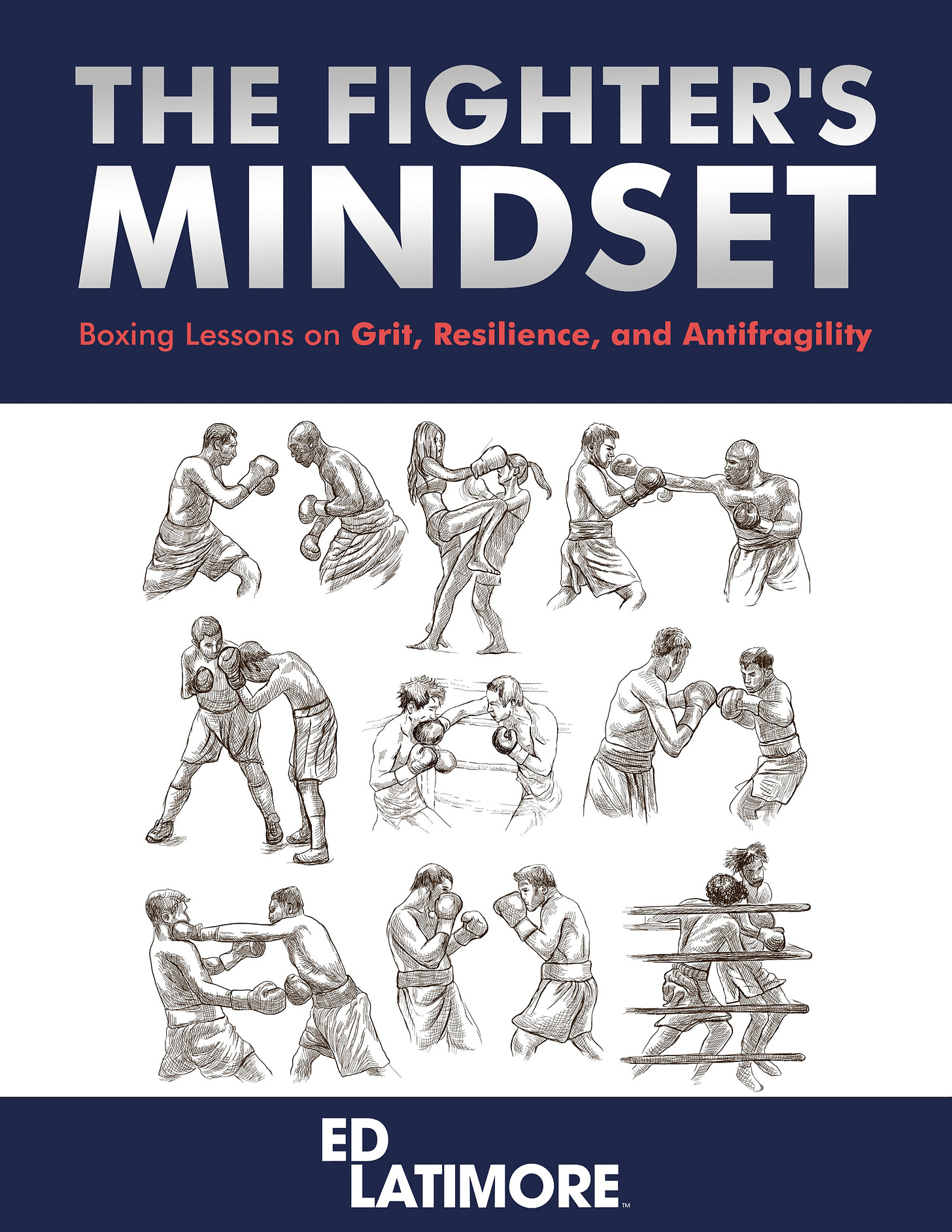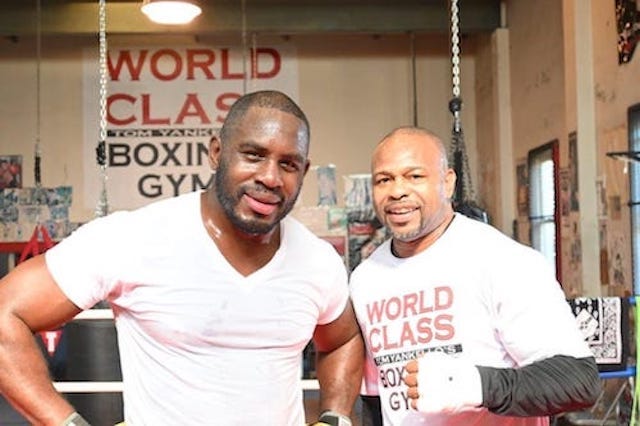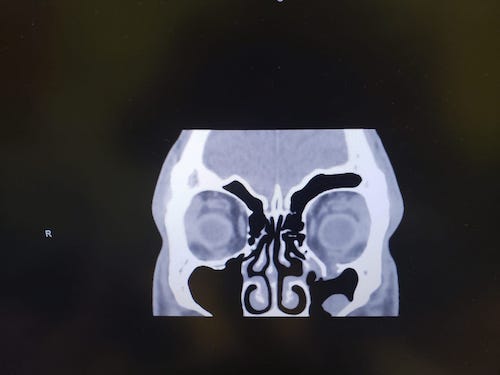Why you have to keep pushing through the pain
|
Many people associate pain with defeat, loss, and failure. Boxers, on the other hand, develop a different relationship with pain. There is nothing quite like the pain you experience during the hard work of pushing your body to its limits. The conditioning and preparation that goes into boxing are incredibly difficult, unpleasant, and painful. This, itself, isn’t surprising. Perhaps more surprising is how many athletes across all sports have a similar experience. Many competitive athletes would rather play their sport than ever practice it. This feeling is best summarized in a quote by Hall of Fame linebacker Ray Lewis: “You pay me for Monday through Saturday. I do Sunday for free.” The idea is that practice is miserable, but performance is fun. In a perfect world, we’d only show up at game time and have the performance of a lifetime, and that would be it. However, you can’t perform without practice, and you can’t get through practice without pain. “You don’t rise to the level of the competition. You fall to the level of your training.”
-U.S. Navy Seals
In this e-book, I teach you 20 mindset lessons I learned from my 13-1-1 professional heavyweight boxing career. Use these to conquer any challenges you face in the ring or life. 1) Fulfilling experiences requires sufferingOnce you go through the pain of preparation, there is the actual event. The winner of a contest hurts just as much as—and often more than—the loser. Pain becomes part of the life of a boxer. Through the course of a match, boxers routinely battle through concussions, major contusions, bruised kidneys, swollen eyes, and cut eyebrows, and on rare occasions, fighters even will battle through injuries that require reconstructive surgery. Fighters come to terms with the idea that they will experience pain. There are no pleasant experiences in fighting. Only fulfilling ones. And the more fulfilling the experience, the more pain you likely had to experience. While it may not be the same pain as the physical pain from a fractured orbital bone, most things in life carry a similar expectation and exchange. The more fulfilling the experience, the more pain you must suffer to attain it. Sometimes, it’s the pain of restraint. Other times, it’s the pain of sacrifice. But the cost of all pleasantries in life is pain. The average person tries to avoid pain. This is why the average person leads an unfulfilled life. 2) Pushing through the pain is where the progress happensIn boxing, short of a quick knockout, I cannot win without getting hit. Getting hit by a guy trained to fight will never be pleasant. I can defend his shots, but I still have nerves in my arms and hands. As the fight continues, I’ll inevitably get hit, and all those hits will hurt. I can not experience the glory of victory without suffering pain. This is a powerful analogy and lesson for life. If you want to make more money, you must experience the discomfort of pushing your mind and body to the limit to acquire skills and log hours as you create a product, launch a business, or win a competition. To make friends and meet lovers, you must endure social awkwardness and push forward even though it may not work out. To be healthy, you must endure the pain of self-discipline in your workout routine and moderation in your consumption. To have a noteworthy life, you must accomplish noteworthy things. Accomplishing noteworthy things means you must endure noteworthy pain because it’s the only way to acquire noteworthy rewards. “The pain you feel today will be the strength you feel tomorrow.”
-Arnold Schwarzenegger
3) Pain transforms you when you embrace itSomething remarkable happens when you embrace the more difficult and potentially painful path. Slowly but surely, it becomes easier to do painful things. It becomes easier to do painful things because you begin to see the results of your suffering and form the habit of doing what is difficult but necessary. You start out slowly, making one painful but necessary decision in your life, one that leads to an excellent result. Seeing the result is a good experience that makes you more likely to make a difficult choice in the future. When it comes time to make the difficult decision again, you do it with less internal resistance. This is how the habit of enduring temporary suffering for long-term gain begins. This process is never quick. Like any habit, it takes time to build. Furthermore, the results don’t happen instantly. Changing your body and social and love life takes time, and changing your income level takes time. But getting small victories along the way due to the effort you put in makes enduring future pain easier. If you’re new here, you may as well subscribe. It helps me and everyone else out. 4) Pushing through the pain comes with unique benefitsI always tell guys that running has never been enjoyable to me. Some people experience a runner’s high, but I’m not one of them. Not only do I run 5-6 days a week, but I don’t have to force myself to do it either. I embrace the pain of running (the physical strain and often boredom) because it improves my mental clarity and physical abilities. Those benefits take a while to see, but I have to stick with the difficult process of seeing them. The same is true in boxing.
Then, the benefits I get from running spill over and give me secondary benefits. For my boxing training, I increase my endurance, allowing me to endure more pain as I spar and train. This allows me to spend more time hurting in practice to become a better fighter. I can perform better during a fight if I'm a better fighter. I believe that most people can run 5 miles, regardless of their level of training. It’s only their mental barriers that make them believe otherwise. If you pushed yourself through this pain, you’d realize that being hurt is no big deal. This leads nicely to the next truth about pain. 5) Not all pain is the sameMost people view pain as a response to something being wrong. This is not entirely correct. Not all pain is the same. The type of pain you experience determines the best response. Pain is how you know you’re being strained past your comfort zone. It’s a sign that you have moved beyond the borders that you’re used to. This pain is a sign that you’re in the “Goldilocks Zone” of growth–not so easy that you’re bored but not so difficult that it’s truly impossible. We know that most people live in a world where life is too easy, but what happens when you go too far and enter the realm of impossible things? If you pull or tear a muscle, you went too far out of your comfort zone. But if you have sore muscles after working out, you went just far enough. In both of the scenarios, you experience pain. The difference is that you went beyond your limits, which is what is possible in the first situation. Even if you experience injury, you learn where your limits are and how to ride that line of maximum performance better. You don’t learn, and you grow without pain. You just remain the same. 6) Emotional pain follows the same rulesYour personal life is no different. If you try to make new friends, you can come off as too aggressive or self-centered, which leads to rejection. You might feel awkward while talking to new people and like you’re making a bit of a fool yourself. Some people will want nothing to do with you, but others will still want to hang out. Or you can let your social anxiety win, and you will never meet a new person again. In the first scenario, you push too hard and you still don’t have any new friends. However, you made a push and now you know there’s a line you can dial it back to. In the second scenario, you endure the unpleasantness of social awkwardness, but you experience the reward of making a new friend. Only in the last scenario, where you gave into fear and embraced comfort, does nothing happen. There is no growth, change, or learning. “No pain, no gain”
-Unknown
7) You risk chronic pain by avoiding acute painIf I avoid the pain of working out, I may get by for a fight or two, but I will eventually pay for not pushing myself. If I don’t push through tough workouts, I’ll never know if I have what it takes to do so in the heat of battle. During the fight, I’ll put all my efforts into avoiding pain, then I will not fight well. The rounds feel longer, my lungs start burning, my legs feel like stone, and my opponent’s punches hurt a little more. I’ve seen more than a few fights where a guy gets hit, and it’s not hard, but it’s hard enough for him, and suddenly he can’t get up. They aren’t comfortable with pain, so they have developed the habit of avoiding pain. Either you’re moving towards what you want or away from what you don’t want. Either you’re learning to embrace suffering or you’re training to live the life of a coward who is enslaved by his fear of pain. This doesn’t mean you go looking for pain for pain’s sake. It just means you suffer now, so you don’t have to later. If you avoid the short-term acute pain, you’ll suffer much more in the long run. 8) There’s a difference between being hurt and injuredWhen I played football, the coach would ask a question whenever someone felt set back by the pain that inevitably came with practice. “Are you hurt, or are you injured?” Both conditions are painful, but there is a difference. You can continue to play through being hurt. It’s merely a matter of pain tolerance. Sometimes, it’s intense but not debilitating. Injury is debilitating. Injury is an actual change in your condition that prevents performance. You cannot play through injury. Injury is the thing you actively want to avoid if possible. You need time out of the game to recover from these things. When you’re injured, continuation–even it means enduring almost no pain–is impossible. Sometimes, being injured is more painful than being hurt. Sometimes, it is less. In boxing, the distinction is very clear. You can suffer all match, but the referee won’t stop the fight as long as you are fighting back. But if you don’t respond to a barrage of punches for too long, the referee can and will stop the fight. If you don’t get off the canvas, the fight is over. In both situations, you have effectively suffered an injury. Even if you aren’t in serious pain, you have demonstrated the inability to continue.
I’ve been fortunate in my boxing career. I’ve only suffered one major injury. My experience with that highlights the difference between hurt and injury. During a routine sparring session, I took a jab to the eye. The shot wasn’t even particularly powerful and I blocked most of the impact from it, but the part that made contact with my eye was incredibly painful. Because of my years of fighting and sparring, my relationship with pain has been altered. Most people would have probably thought something was seriously wrong, but I took it as the routine pain of boxing. I finished the sparring session a little sore, but not really under the impression that anything was wrong. Two days later, when I sparred, I took a small shoulder shrug to the same eye. The pain was so intense that for the first time in my life, I stopped the sparring session. Turns out that the little flicker of a jab that I sustained hit my eye at just the right angle and caused a blowout fracture that required surgery. The injury required surgery and nearly 16 weeks out of the ring before I could fight again. Some things are just painful and make you want to stop while others are injuries that force you to the sidelines for good. Recap of the 8 reasons about pushing through the pain
The best and worst things in life walk hand in hand. There is no pleasure without pain. The more you seek to avoid one, the more you forfeit the experience of the other. What’s important is keeping the pain in perspective. Some things merely hurt you–a lot–but they don’t destroy you. The pain often makes you more capable in the future–if you react to it with the proper perspective. But it does not debilitate you. When you’re injured and broken, this is not time for despair and melodrama either. Then, it’s time to rest and heal up for another day of fighting. |
Stoic Street Smarts
Teaching what I've learned from the hood, the ring, and everything in between. Join 35k other readers to learn how to manage risk, build relationships, and confront reality.
Writing is like any other business:It doesn’t matter how good your product is if you don’t have a way to get it in front of customers. Your idea will fail to launch and fail to impact lives. That said, no amount of marketing or sales can save a terrible product.So while writing the book might be the easiest part, it’s also—by far—the most important. That’s because good writing is good marketing. If it’s well-written, people will talk about the book. They’ll recommend it. Word of mouth will...
Forgiving myself has been the most challenging thing I've done. I'm not sure I've done it, but I try every day. As of the writing of these words, I've got 12 years of sobriety. This isn't enough time to forgive myself, as I still feel guilty for my behavior under the influence and beyond. But each day is a new one I approach with humility and gratitude for my luck and second chances. The main idea I remember when forgiving myself is that the past isn't real. Understanding this concept is...
Before we get into today's newsletter, here are some announcements and updates. We're not one week out from my return to the ring after 8 years off. July 12th, I fight here in my city at the Highmark Stadium. I feel fortunate that I'm able to fight on this card in the heart of the city. The card is not broadcast or streamed. I know my email list spans the entire world, but I also know there are some people in the Pittsburgh area where I live. If you want to come down and enjoy a great night...


